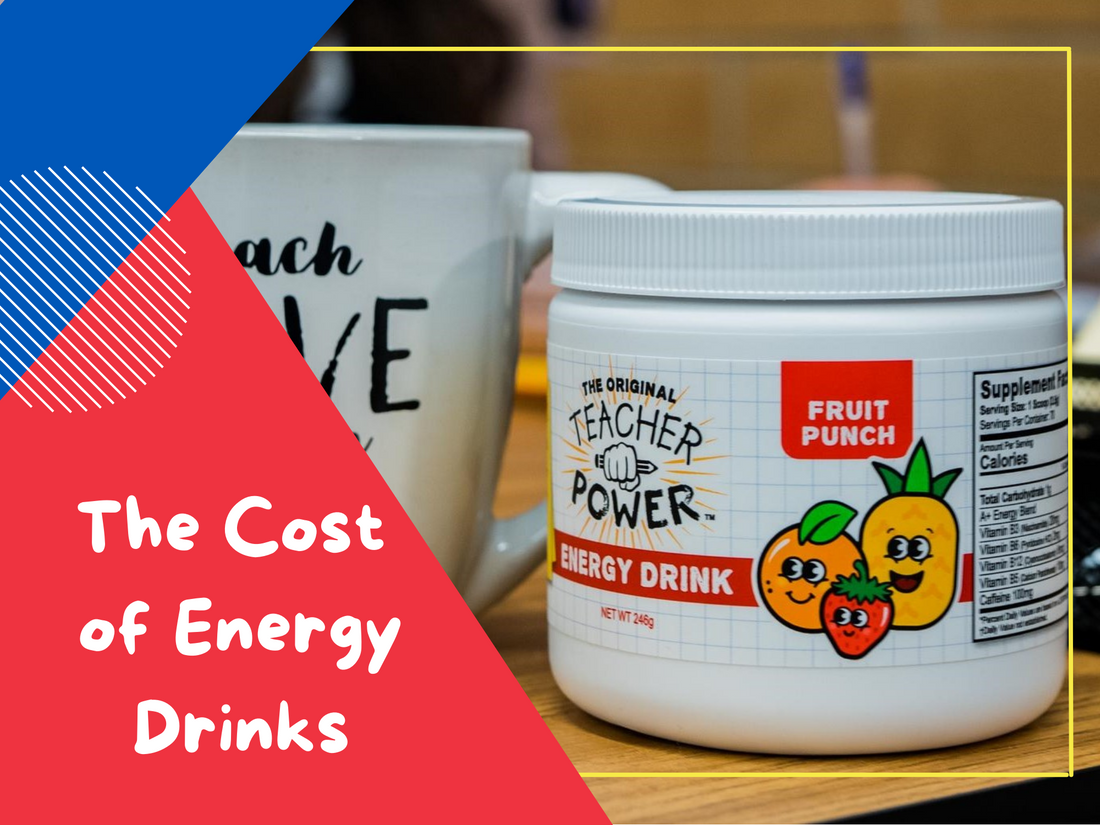Cheap Energy Drinks (Are They Worth It?)
Face it, sometimes you need a little go-go juice to make it through the day. Energy drinks have taken the world by storm, promising to increase stamina and performance. But, at what cost? To your pocketbook? And to your health?
When deciding the right energy drink brand for you, you have got to weigh the pros and cons.
The Cost of Energy Drinks
To Your Pocket Book
Canned energy drinks cost, on the low end, $1.40* per can when purchased in bulk from the product manufacturer or on Amazon.com. On the high end, it is twice that amount. Consuming one can a day adds up fast. That is between $42 and $84 a month. In a year, it is between $504 and $1,008.

The cost of canned energy drinks skyrockets if purchased individually in a convenience store. It goes up by a dollar or more. Planning ahead saves you a boatload of money.
Is your energy perk worth that much money? Especially if you are living on a budget?
To Your Health
Most energy drinks add excessive amounts of sugar. And some, like Bang ($1.98* per can), contain upwards of 300 mg of caffeine per 16 oz can.
Sugar
The Center for Disease Control (CDC) connects sugary beverages with obesity, type II diabetes, heart disease, kidney disease, tooth decay, and gout. The CDC associates obesity with numerous health consequences, including cardiovascular diseases, gall bladder disease, cancer, depression, osteoarthritis, and other issues that reduce the quality of life.

The CDC recommends limiting your consumption of sugary drinks. The American Heart Association (AHA) recommends total sugar intake limits based on gender and age. For men, it is 36 grams of sugar per day. For women and children, it is 25 grams.
For your health, notice one 8.4 oz Red Bull contains more sugar than the total daily recommended amount for men. And one 16 oz Monster Energy has three times the recommended sugar intake for men.
Caffeine
The Food and Drug Administration (FDA) indicates 400mg of caffeine is generally safe for healthy adults. However, the actual safe level depends on how the individual processes caffeine.
In general, regular caffeine use builds caffeine tolerance. Thus, requiring higher levels of caffeine to achieve the same performance benefits. An insurmountable tolerance happens when the only benefit from caffeine is its anti-sleep effect. Caffeine tolerance is built at every level of caffeine consumption.
Consuming more caffeine at this point is pointless. It leaves the user jittery and awake, but not necessarily cognitively computing.
In practice, this means if you drink one Bang Energy Drink and on the same day eat chocolate or drink a coffee, you hit the generally safe upper limit.
Overconsumption of caffeine leads to trouble sleeping, anxiety, jitters, nausea, racing heart rate, and headache. Rapid caffeine consumption can be toxic and cause seizures.
What Do You Want in a Wake-Me-Up Drink?
Consuming conscientiously is better for your pocketbook and much, much better for your health.
How much sugar should you have? How much caffeine? Do you want your energy drink to be packed full of excess chemicals or extra nutrients? And how much do you want to pay for it?
Product Examples
Take a look at 5-Hour Energy’s ingredients. For $1.86* a serving, you get 200 mg of caffeine, plus numerous chemicals purported to increase energy and provide flavoring (which do not effectively cover the chemical taste).
Perk Energy adds body-building nutrition to their energy drinks by including amino acids and collagen. For $1.75* a serving, you get 100 mg of caffeine to help wake you up, but you are paying for a whole lot more than caffeine.
For $1.00* per serving, Pure Boost provides 100 mg of caffeine from green tea extract along with numerous vitamins, minerals, and an anti-oxidant blend. This drink is a caffeinated multi-vitamin, but without Vitamin D. Vitamin D provides various health benefits, including bone health, immune health, and cognition.
What about Cheap Energy Drinks?
Are you looking for energy drinks that simply wake you up and increase physical and cognitive performance? Then look for ones with the right amount of caffeine for your needs. Caffeine is the proven ingredient that boosts energy. When it comes to increasing energy levels, all the other ingredients are marketing hype.
B-Vitamins are necessary to convert food into usable energy. So, added B-Vitamins in energy drinks are natural and healthy.
Powder mixes are the cheapest energy drinks. Powders reduce the product’s container size and weight to save money by reduced packaging and shipping costs. In addition, powders give the user greater flexibility and convenience.
Instead of spending dollars per serving, spend pennies. With powdered mixes, you get the same caffeine performance benefits. But, always check the nutrition label to ensure you get the ingredients you want.
Fancy packaging is eye-catching, but it adds unnecessary cost to any product. You purchase energy drinks for the contents, not the packaging.
Teacher Power Energy Drinks
Some of the best cheap energy drinks are produced by Teacher Power. Our energy drinks cost only $0.40* per 100 mg serving of caffeine. And since they come in a powdered mix, you determine your serving size. A half-scoop contains 50 mg of caffeine at only $0.20 per serving.
With our simple formulation and use of high-quality ingredients, there are no jitters, no crashes. Teacher Power Energy Drinks provide a sugar-free, low-calorie energy boost. And we have four tasty flavors: Black Cherry, Raspberry, Fruit Punch, and my favorite, Strawberry Lemonade.

Put your immune system in fighting order this cold and flu season with our new immune-boost products in Wassil and Caramel Apple flavors. These delicious energy drinks can be enjoyed hot or cold. For $0.50* a serving, our immune-boosting drinks add vitamin D, echinacea, elderberry, ginger, curcumin, and zinc to the energizing kick of caffeine.
What are you waiting for? For pennies a serving, you can be enjoying the energizing perk of Teacher Power Energy Drinks.
*All cost per serving obtained on Amazon.com.
By: Jae O. Haroldsen
The content of Teacher Power’s website is for information only, not advice or guarantee of outcome. Information is gathered and shared from reputable sources; however, Teacher Power is not responsible for errors or omissions in reporting or explanation. No individuals, including those taking Teacher Power products, should use the information, resources or tools contained within to self-diagnosis or self-treat any health-related condition. Teacher Power gives no assurance or warranty regarding the accuracy, timeliness or applicability of the content.
Sources:
Ayuda, Tiffany, Hickman, Kierstan, & Gasbarre, Krissy. “The Best Energy Drinks for 2021, According to Dietitians.” Eat This Not That. 2021. https://www.eatthis.com/healthy-energy-drinks/
“Caffeine Chart.” Center for Science in the Public Interest. 2021. https://cspinet.org/eating-healthy/ingredients-of-concern/caffeine-chart
Patel, Kamal. “Caffeine.” Examine.com. 2021. https://examine.com/supplements/caffeine/
“Adult Obesity Causes and Consequences.” CDC. 2021. https://www.cdc.gov/obesity/adult/causes.html
“Spilling the Beans: How Much Caffeine is Too Much?” FDA. 2018. https://www.fda.gov/consumers/consumer-updates/spilling-beans-how-much-caffeine-too-much
Patel, Kamal. “Vitamin D.” Examine.com. https://examine.com/supplements/vitamin-d/

